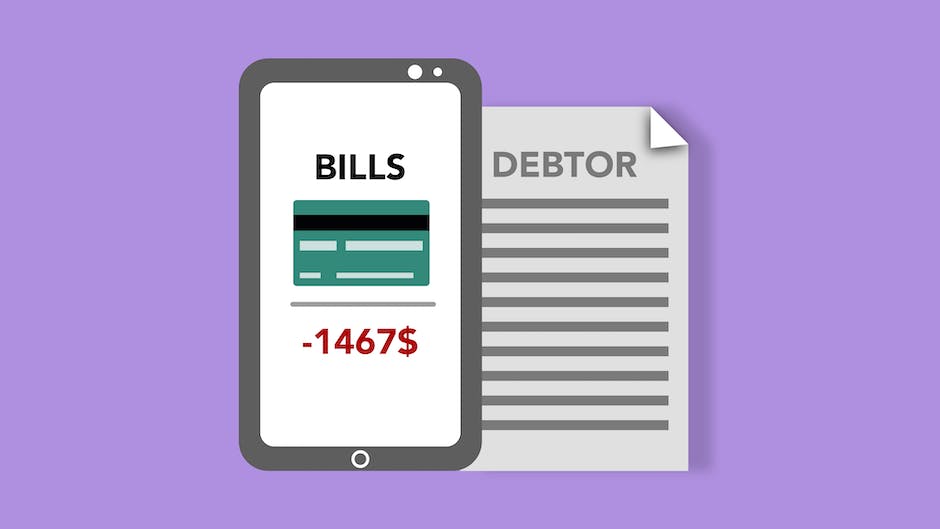In the modern economic landscape, professional handling of missed payments is critical to maintain positive client relations, ensure enterprise sustainability, and thwart potential financial losses. This comprehension criticality can only be achieved through a thorough understanding of the common types of missed payment excuses, the ability to effectively evaluate their legitimacy, and the development of proficient responses. This exposition illuminates these integral tenets, as well as presents preventive measures to minimize missed payments, highlighting initiatives that promote timely payments and financial education.
Common Types of Missed Payment Excuses
Common Types of Missed Payment Excuses
The various excuses for missed payments can be characterized into different categories, such as forgetfulness, financial hardships, and technical problems. Each excuse holds varying levels of legitimacy and frequency of occurrence.
Category 1: Forgetfulness
One of the most frequently given excuses for missed payments is simple forgetfulness. Customers often claim that they’ve overlooked the payment due date among their other engagements and responsibilities. While this may be true for some, it’s also plausible that it could be a way to buy more time before settling outstanding bills.
Category 2: Financial Hardships
Another common reason given for missed payments revolves around financial difficulties. These might range from unexpected expenses, unemployment, to living from paycheck to paycheck with no room for overdue charges. For professionals dealing with these types of excuses, it is essential to maintain empathy while also ensuring business interests.
Category 3: Technical Issues
In an increasingly digital age, technical glitches or difficulties have become an excuse for late or missed payments. Customers may cite failed bank transfers, problems with the online portal, or issues with their credit or debit cards. While technology failures are a legitimate possibility, there is also the chance that clients might use these reasons as a scapegoat for delay.
Overview of Missed Payment Excuses and Their Validity
The credibility of excuses given for missed payments often hinges on the customer’s payment history. For instance, a client with a spotless payment history might be more believable if they claim a technical glitch caused a missed payment, compared to a regular defaulter using the same excuse.
Social and economic conditions also play a major role in the frequency of these excuses. Notably, during financial recessions, there’s typically a surge in people using financial difficulties as a justification for their missed payments.
Effective customer relationship management calls for a personalized approach to each case. This involves understanding the excuse and assessing its validity based on the client’s past behavior and current circumstances. Balancing empathy for the client’s situation and ensuring business continuity can be a delicate task.
Strategies like courteous reminders, initiating automatic bill payments, and empathetically understanding the client’s financial situation can offer resolutions. Ultimately, having a plan for these scenarios can enhance customer relations and decrease payment defaults.

Evaluating the Legitimacy of Excuses
Delving Deeper into the Concept of Missed Payment Excuses
Various reasons can lead to missed payments, and it’s common for clients to offer explanations or give excuses for such instances. These justifications can be diverse––ranging from financial troubles, forgetfulness, not fully understanding the payment process, to more intentional efforts to evade payment. Therefore, as a professional, comprehending the nuances of these excuses, their genesis, and being able to assess their veracity is key.
Recognizing Deceptive Excuses
A critical aspect of evaluating the legitimacy of missed payment excuses is recognizing deception. Often, patterns emerge in deceptive excuses that can help professionals identify them more easily. Inconsistencies in the reasons provided, frequent changes in the explanation, or excuses that seem overly complex may indicate deception.
Also, a customer’s refusal to provide additional details or documentation to support their claim, or the diversion of blame away from themselves can be red flags. Comparing the customer’s excuse to market trends or news events can also be helpful, as deceptive individuals often use wider socioeconomic events as smokescreens for their personal actions.
Understanding a Customer’s History and Behavior
Another key strategy for assessing the legitimacy of missed payment excuses is understanding the specific customer’s history and behavior. A one-time miss might be more easily attributed to forgetfulness or error, but chronic non-payment would need a more thorough examination.
Historical data about the customer, such as previous payment patterns, can be beneficial. Other financial behavior, like the frequent maxing out of credit cards or habitually late payments, may reveal a pattern of financial irresponsibility. It’s also helpful to consider customer communication patterns – are they generally hard to reach, or did they promptly inform you of an issue that would lead to a missed payment?
Using Data Analysis for Predictive Patterns
Data analysis can also play a significant role in evaluating excuses for missed payments. Machine learning algorithms can harness past payment data to predict future behavior. This predictive analysis can help identify patterns that indicate potential future payment issues. For example, if a customer habitually misses payments after a major holiday or near the end of a payment cycle, this pattern could be used to predict future missed payments.
Data analysis can also help in separating the plausible excuses from the less believable ones. By referencing industry-wide data, professionals can validate whether a particular excuse — such as job loss, illness, or a natural disaster — is likely given the context.
Honing Analytical Abilities
Continuous enhancement of judgment and adaptation of strategies for understanding missed payment excuses is essential. As societal and economic scenarios shift, possible justifications for missed payments may alter in terms of authenticity and prevalence. Hence, professionals should remain updated with these changes to assess the reasons for missed payments accurately.
By staying vigilant to potential deceit, comprehending specific customer behavior, and leveraging data analysis, professionals can more effectively traverse the intricate realm of missed payment excuses. This forestalls manipulation, ensures equality in treating customers, and maintains the fiscal well-being of businesses.

Effective Responses and Solutions to Missed Payment Excuses
Deciphering Missed Payment Excuses
Gaining a deep insight into common justifications for missed payments is crucial to crafting effective responses. Clients may cite various causes for their delayed payment, such as financial challenges, job loss, or unexpected occurrences like health issues or natural calamities. Furthermore, it’s important to note that while some clients may intentionally miss out on payments due to the absence of repercussions, others might unintentionally forget to fulfill their payment commitments.
Developing a Conversation Guide
Creating a conversation guide helps maintain professionalism and put your conversation on the right track. Firstly, listen attentively to the customer’s explanation and exhibit empathy to build rapport. Whilst remaining firm, always show understanding and respect. Understanding the client’s situation will enable you to propose the best solution. A reminder of the consequences of non-payment, such as late fees or adverse credit reports, can offer a subtle motivation for the client to work towards a solution.
Potential Payment Arrangements or Compromise Solutions
Meeting the client halfway can often be a good way to ensure future payment. This could be through a payment plan, an extension of the due date, waiving of late fees, or a reduction in the total amount owed depending on the client’s situation. For instance:
- A payment plan can be a suitable strategy if the client has a temporary cash flow problem. This allows the client to pay back the debt in several smaller, more manageable amounts over a specified period of time.
- An extension of the due date might be appropriate if the client is expecting a certain payment or income soon but not within the payment period.
- For a long-standing good client who missed a payment due to a genuine mistake, waiving late fees might be acceptable as a one-time goodwill gesture.
Understanding Relevant Laws and Regulations
Familiarising oneself with the relevant laws and regulations around debt collection is critical. For instance, in the United States, the Fair Debt Collection Practices Act (FDCPA) prohibits debt collectors from using abusive, unfair, or deceptive practices to collect from you. This Act sets limits on when collectors can call you, prohibits them from saying false things about you, and gives you the right to see detailed information about the debt. Similarly, the Fair Credit Billing Act (FCBA) provides for corrections of errors on credit billing statements. Hence, the actions you take to recover a debt should comply with these regulations to avoid legal complications.
Following up Missed Payments
It’s extremely crucial to follow up on missed payments in a consistent and timely manner. Providing a friendly reminder before the payment date can prevent some late payments. If the payment is missed, following up promptly with a polite reminder and clarification about the late fee policy can often bring results. Subsequent follow-ups could become progressively more serious, outlining potential legal actions or services termination.
Leveraging Technology to Minimize Missed Payments
Modern technological solutions provide a plethora of resources that are handy in preventing missed payments. These include automatic payments, which enable customers to set up a recurrent debit process from their respective accounts. The use of payment reminding software is also a beneficial approach as it prompts clients about the due dates of their payments and alerts them in case of any skipped payments. Such tools not just cut down the chances of missed payments but also create a standard procedure for follow-ups.

Preventive Measures to Avoid Missed Payments
Implication of Effective Reminder Systems to Avert Missed Payments
The establishment of an effective reminder system plays an integral role in reducing instances of missed payments. Such systems regularly alert customers about due dates and outstanding amounts, significantly reducing the chances of oversights or simple forgetfulness that could result in missed payments. The modes of reminders can be diverse, ranging from emails, text messages, phone calls, to push notifications on smartphones. It’s essential that the reminder system is automated, uniform for all customer accounts, timely, and inclusive of all crucial details like due dates and payment methods.
Promoting Auto Payments to Avoid Missed Payments
Another preventive measure to decrease the incidence of missed payments is promoting the use of auto payments. Automatic payments or auto-pays ensure that customers’ payments are remitted on a consistent, scheduled basis. Customers enter their payment method details into a secure system, decide on a payment schedule, and the payments are made automatically without further input from the customer. This method removes the customer’s need to remember to make single payments and reduces the likelihood of missed payments. Companies should actively promote the use of automatic payments to customers as a hassle-free solution to manage their payments on time.
Offering Incentives for Timely Payments
Encourage customers to make payments on schedule by offering incentives for timely payments. These incentives may include discounts, rewards, or reduced interest rates. For instance, a certain percentage off of their next payment, an upgrade to a superior product or service, or loyalty points that can be exchanged for products, services, or discounts. The purpose of providing these perks is to make customers more disciplined about making payments on time by giving them a positive result for timely action.
Financial Education for Customers
Educating customers about the consequences of missed payments is also an important measure. Not all customers fully understand the negative implications of consistently missed payments; this can include late fees, higher interest rates, damage to credit rating, and legal actions in extreme cases. Good financial education focuses on providing information and transparency to customers about the payment process, the implications of missed payments and the importance of maintaining a regular payment schedule. Customer education can be achieved through guides, workshops, informative emails, and dedicated sections on the company’s website.
In combination, these strategies—effective reminder systems, promoting auto payments, offering incentives for timely payments, and providing financial education—can help in drastically reducing the common excuse of forgetting or not knowing when to make payments. By demystifying the process and benefits of timely payments, businesses can foster a more reliable revenue stream and customers can better manage their financial obligations.

The ultimate objective of honing in on intricate knowledge about missed payment excuses and prevention does not solely revolve around enhancing revenue collection efficiency. It also aspires to foster a more understanding and compassionate landscape in which enterprises can navigate financial challenges with greater ease and flexibility. By effectively evaluating and responding to missed payment excuses, and capitalizing on preventive measures, professionals not only ensure their business realm’s financial viability but also contribute to crafting a more cooperative and ethical economic ecosystem.


Recent Comments